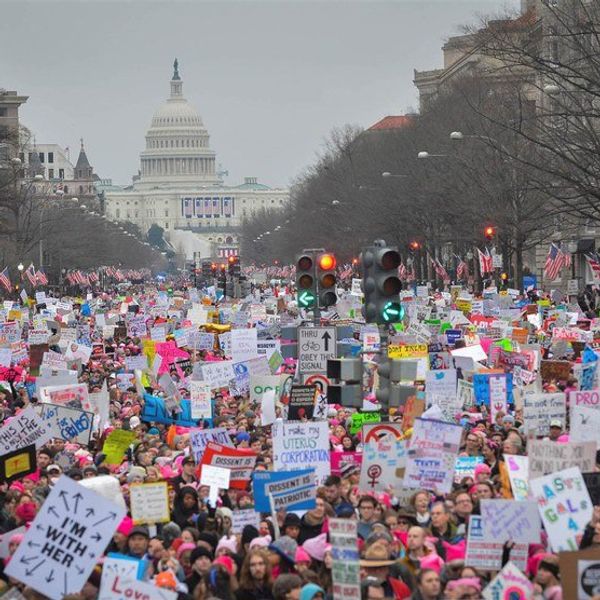As we all know, Donald Trump is officially our president as of Friday, January 20th. To many, this is shocking, but also to a lot of people, it is exactly what they wanted. While I will not disclose my opinion or views, I will say one thing; I attended the Intersectionality March here in Pittsburgh and it moved me so much as to write about it this week!
For those of you that do not know, intersectionality is defined as the interconnected nature of social categorizations such as race, class, and gender as they apply to a given individual or group. This term was first coined in 1989 by American civil rights advocate and leading scholar of race studies, Kimberle Williams Crenshaw. Most know this term from stemming the word "intersectional feminism." Basically, this word stands for the political, economic, and social equalities of all people.
Anyhow, inspired by the Women's March in Washington D.C., Pittsburgh did their own sister march and then decided to arrange another march that represented all of the minorities across the country. I decided to attend with a small group of friends to represent our backgrounds. The importance of having racial groups, ethnic minority groups, religious minority groups, gender minority groups, disabled groups, affirmative action groups, and many more voicing their opinions are essential. Before the mach began, a feeling of acceptance was in the air due to being surrounded by thousands of people who were standing up for what they believed in, and it just so happened to be what you were also fighting for. In today's world, everyone's voice and opinions matter frankly because no one knows everything about everyone and not everyone knows in what ways people are being suppressed. Simply put, we need to listen to each other. Being in an area in the middle of the city where things like "love is love", "no fascists USA" and "all lives matter" are being yelled while marching in the streets is simply empowering. I think it's important for these people to have their voices heard and it's important that everyone realizes that just because people do not see these issues at first hand, that it certainly is an issue of oppression that people are doing to these groups and it is NOT okay.
An intelligent woman, Chimamanda Ngozi Adichie once said "culture does not make people. People make culture," this is really important to note in life because this is so true. If people make oppressing minorities something that is accepted, it will be accepted in society, which will affect culture. If we decide that oppressing minorities is bad, then it's impossible for culture to be messed up. Most importantly, we need change. This march taught me that standing up for what you believe in is more important than what people think of you. It's more important to have your own opinions, rather than molding opinions from crowds you associate yourself with or from family. Stand up for what YOU believe in and you will be so much happier. I cannot tell you enough how empowered I am to make the world a better place after attending this event. The best way to stand up for what you believe in is to actually walk the walk, not just talk the talk. If you have an opinion, voice it, stand up for it, do something about it! After all, Mahatma Gandhi once said "Be the change you wish to see in the world."





















